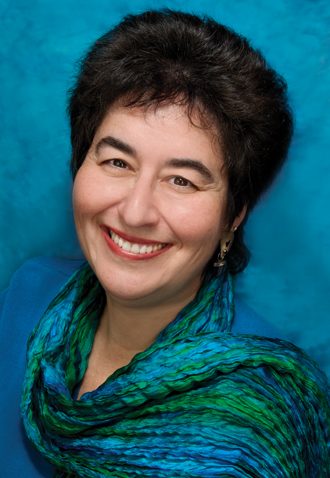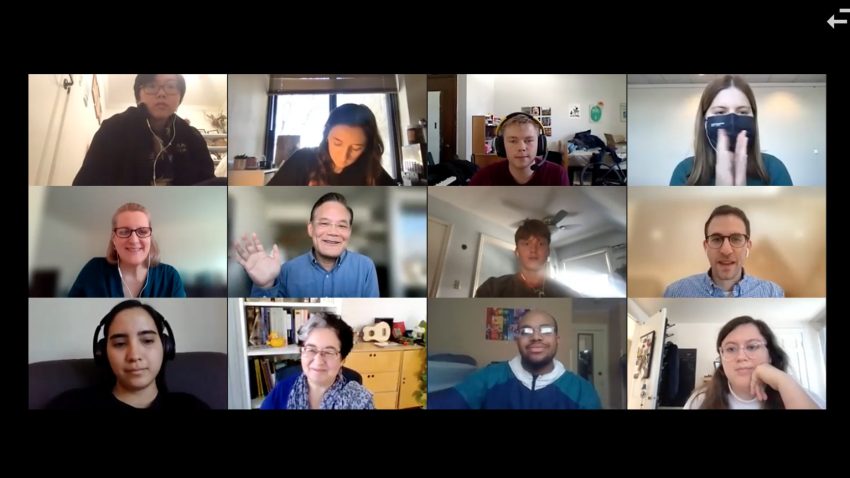Now that we are nearing the end of our tenure as students in Democracy and the Arts, I’d like to take it back to the beginning of the course to reflect on what my expectations were against reality.
My introductory blog post focuses on the fact that I am not well versed in politics, and that this lack of knowledge was the biggest challenge ahead of me for the course, as well as what I thought I would learn the most about. Talking retrospectively, politics hasn’t been my biggest thinking point of this course. I’ve found most of the political issues we’ve discussed to be accessible for me, and not needing too much background knowledge to wrap your head around.
The concept that I’ve ended up spending the most time thinking about is actually my vocational path, which has been relatively concrete for the past few years. The reason for this is all of the interviews that we did as a class throughout the co urse. Every one of these was fascinating, and brought me to realize that there are so many pathways that you can take in the arts. To see how everybody zig-zagged through positions as teachers, professors, performers, and everything in between to where they are today helped me to see that I should be keeping an open mind. Especially because a lot of the work that our interviewees described to us seem like a pretty fine career path to me.
urse. Every one of these was fascinating, and brought me to realize that there are so many pathways that you can take in the arts. To see how everybody zig-zagged through positions as teachers, professors, performers, and everything in between to where they are today helped me to see that I should be keeping an open mind. Especially because a lot of the work that our interviewees described to us seem like a pretty fine career path to me.
One talk in particular that I found to be eye opening was when we met with the folks at the Kennedy Center to discuss arts access. I think so highly of this job, because of how much creative thinking has to  go into the problem solving. The post-reflection blog post for this talk that Abby posted contains a quote from Betty Seigel that I think sums up why the position sounded so interesting to me; “Access is constantly evolving, improving, and changing. Communities are constantly evolving, improving, and changing. So we have to change with them. So our work is actually never done.” While the idea of work never being done was said (as far as I remember) only by Betty Seigel, I think this can be applied to most of the other jobs belonging to our interviewees. So many of the people we talked to were fighting for equitable access to arts everywhere, plain as that.
go into the problem solving. The post-reflection blog post for this talk that Abby posted contains a quote from Betty Seigel that I think sums up why the position sounded so interesting to me; “Access is constantly evolving, improving, and changing. Communities are constantly evolving, improving, and changing. So we have to change with them. So our work is actually never done.” While the idea of work never being done was said (as far as I remember) only by Betty Seigel, I think this can be applied to most of the other jobs belonging to our interviewees. So many of the people we talked to were fighting for equitable access to arts everywhere, plain as that.
One comparison I’d like to point out that I found interesting throughout the whole course was the idea of non-partisan politics among the folks we talked to. There was a big difference in those we talked to who were employed by the federal government and those who weren’t. And even among those who were employed by the government, there were differences among how much of their own personal values and beliefs they brought to their respective positions. Some of our interviewees who were government employees simply told us that they are required to practice non-partisan politics, and that was the whole conversation.
But others, such as Samir Meghelli, had some more to say about it. Dr.Meghelli, when asked about the politics of being a curator for a smithsonian museum, immediately asked us if we were recording the interview. We told him yes but that we could pause the recording if it’d make him more comfortable to answer o ur curious question. When he started to answer the question, recording off, it was easy to tell that this is something he’d thought about a lot, and had some opinions on. What I took away from this is, while the job requires him to curate exhibits that are strictly non-partisan, there really isn’t such a thing as a non-partisan art exhibit about “topics and issues facing urban communities today”, which is how the Anacostia Community Museum describes its exhibitions on their website. I think from this also that he felt it was his duty as a curator to create exhibits that lift the underrepresented voices of the black community and advocate for change. This was the first time in the whole hour-long interview that he had told us anything I could interpret as his own opinions.
ur curious question. When he started to answer the question, recording off, it was easy to tell that this is something he’d thought about a lot, and had some opinions on. What I took away from this is, while the job requires him to curate exhibits that are strictly non-partisan, there really isn’t such a thing as a non-partisan art exhibit about “topics and issues facing urban communities today”, which is how the Anacostia Community Museum describes its exhibitions on their website. I think from this also that he felt it was his duty as a curator to create exhibits that lift the underrepresented voices of the black community and advocate for change. This was the first time in the whole hour-long interview that he had told us anything I could interpret as his own opinions.
This is a contrast to our non-federal employed guests, such as Tim Wright, our tour guide for black broadway during the first week of class. In fact, his job seemed like it was the exact opposite of the museum curators, and he purposefully told us about the controversial history of the buildings. Listening to Tim speak about the art and the historical buildings inspired me to want to make change, because we were learning about how the black community was treated by the government throughout the past 100 years. Listening to Dr.Meghelli, however, wa s a whole different experience, and not because he had any differing opinions to that of Wright, but because he was speaking to us while he was in his professional life, working for the government, and not as a tour guide for a private company.
s a whole different experience, and not because he had any differing opinions to that of Wright, but because he was speaking to us while he was in his professional life, working for the government, and not as a tour guide for a private company.
But the fact that Dr.Meghelli even has a chance to inspire change as a black federal employee is powerful in itself. It parallels some other discussions we have had in class. For example, the architecture of Washington D.C, which we talked about in the first week of class. I think this discussion was helpful to have at the beginning of our time together, because I’ve found that it connects with just about every course concept in some way. The discussion ended with the conclusion that the National Museum for African American History and Culture does not look like the other Smithsonian museums,  and that this is purposeful, because the museum blazes a different path then the rest of the American history museums, which are historically hyper focused on white history. The concept of breaking away from the norms and history of America’s national agenda is foundational to this museum and it’s prominent in the work that Meghelli does too, even though both of these are strictly governmental buildings and workplaces.
and that this is purposeful, because the museum blazes a different path then the rest of the American history museums, which are historically hyper focused on white history. The concept of breaking away from the norms and history of America’s national agenda is foundational to this museum and it’s prominent in the work that Meghelli does too, even though both of these are strictly governmental buildings and workplaces.
These connections of course concepts are prominent in every class period that we’ve had, and continue to be. It is fascinating how every time we conduct an interview, we hear fresh perspectives of democracy and the arts, how the two intertwine, and what it means to our guests. I feel I have digested all of these perspectives and gained a much better understanding of my own perspective as well, which is a good indicator that I have gotten as much out of this class as I’ve put in, which is not always the case with classes, especially over such a short period of time as the month of January.
To conclude, I want to thank everybody for being such supportive and enjoyable classmates throughout the whole month. It’s a rare occurrence for me to not dread g oing to a zoom class, but never once did I dread going to Democracy and the Arts this month. The class was insightful, entertaining, and as sad as it is that you all didn’t get to travel to D.C this semester, it means that I was able to take the class, so I’m thankful for that :). Hope to see everybody around!
oing to a zoom class, but never once did I dread going to Democracy and the Arts this month. The class was insightful, entertaining, and as sad as it is that you all didn’t get to travel to D.C this semester, it means that I was able to take the class, so I’m thankful for that :). Hope to see everybody around!
-Will Fecko
